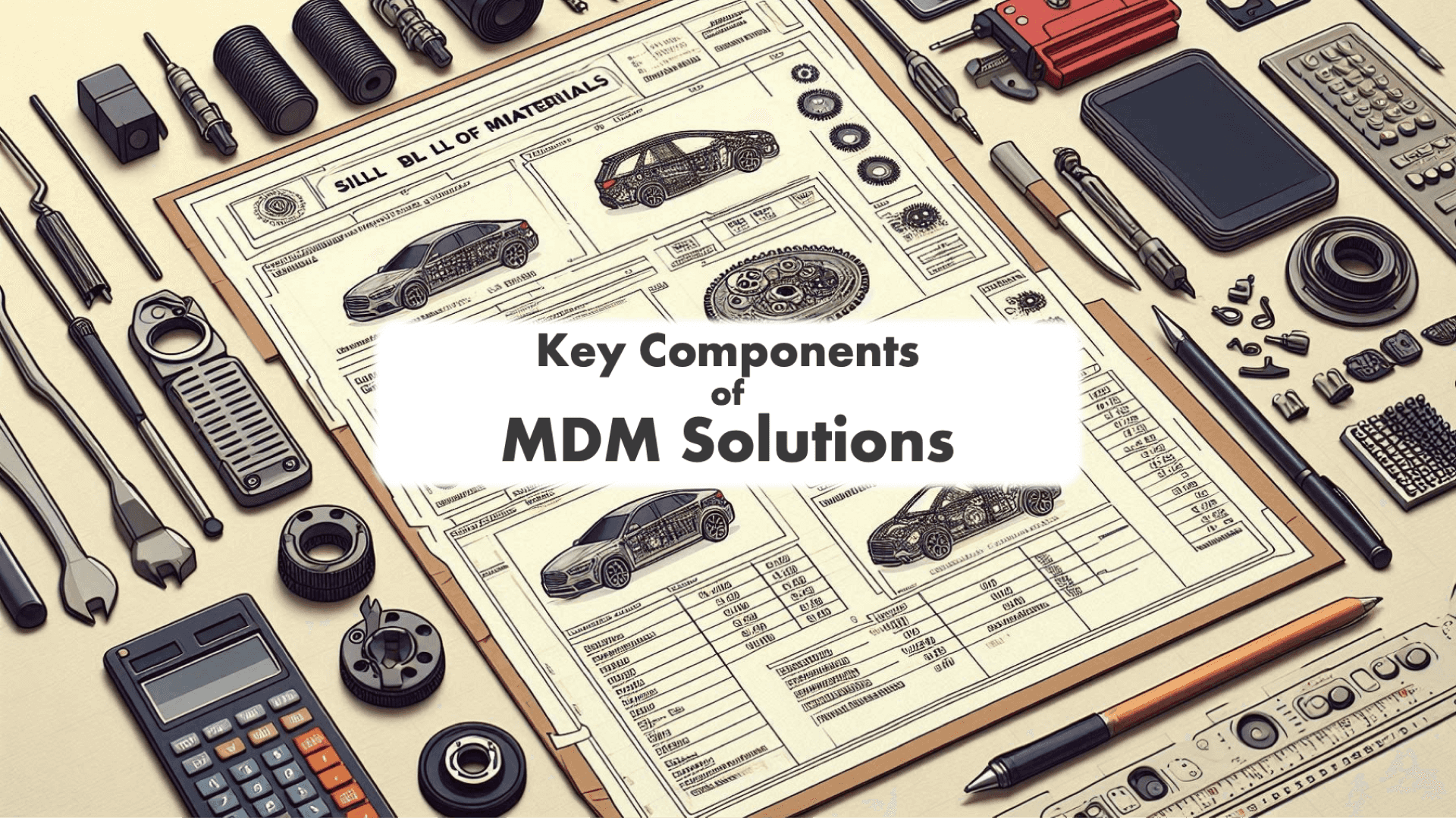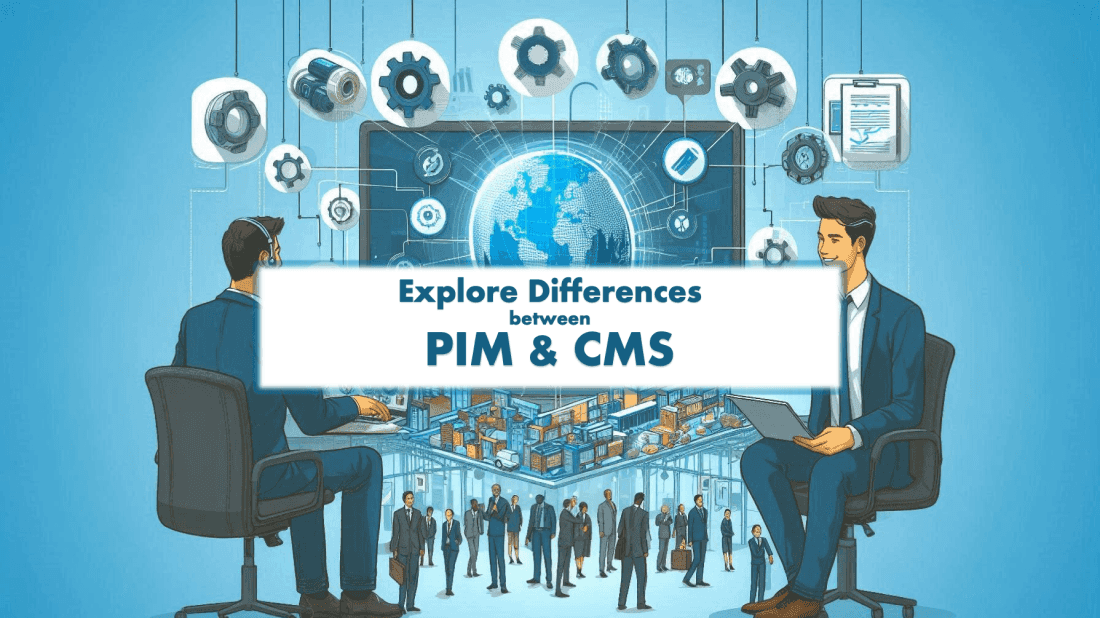Jul 5th, 2024
Creating the Perfect Product Page for Building Materials Catalogs and Sites with PIM system
Categories:Product Information Management SystemCreating an effective product page for building materials catalogs and sites is essential for B2B manufacturers.
The number and type of fields required will vary depending on the product category, and ensuring all necessary information is well-organized and accessible is crucial. Product Information Management (PIM) systems offer a comprehensive solution to manage this complexity.
Comprehensive Product Descriptions
Building materials often serve specific, technical purposes, making it crucial to provide detailed product descriptions that clearly explain their use and function. Whether for professional or domestic use, descriptions should be clear, engaging, and answer all potential questions from buyers. Effective product pages should go beyond mere technical data and include elements such as images, videos, pricing, complementary products, and necessary installation tools.
For example, if you’re selling a type of flooring, your product page should include a detailed description of the material, its durability, maintenance requirements, and possible applications. High-quality images and videos showcasing the product in various settings can help customers visualize the product in their own projects. Additionally, including links to complementary products, such as adhesives or underlayment, can enhance the customer experience by providing a one-stop solution for their needs.
Technical Specifications
Technical specifications are a critical component of building materials product pages. It’s important to select the most relevant specifications for the product type and target audience. Specifications should include material composition, dimensions, weight, color references, durability, resistance, legal requirements, certifications, and more. Additionally, adapting the format of technical data to the region where the product is sold can enhance clarity and compliance.
For instance, a manufacturer of insulation materials might include technical data on thermal resistance, fire rating, and environmental certifications. Providing clear, detailed specifications helps buyers make informed decisions and ensures that the product meets their specific needs. PIM systems can automate the process of organizing and updating this data, ensuring accuracy and consistency across all channels.
Visual Elements
Visual elements play a significant role in product pages. High-quality images, and even virtual or augmented reality experiences, can provide a more immersive and detailed view of products. These elements help create a sense of luxury, quality, and trust, enhancing the overall product experience.
Imagine a product page for ceramic tiles that includes not only high-resolution images but also an interactive feature that allows users to see how the tiles would look in different room settings. This type of immersive experience can significantly enhance the product page, making it more engaging and informative for potential buyers.
Advanced Product Filtering
Given the extensive range of products in the building materials sector, advanced filtering systems are essential. Effective filtering helps customers quickly find and compare products based on specific parameters. This requires well-organized, homogeneous product data, which can be efficiently managed with a PIM solution.
For example, a product catalog for construction hardware might include thousands of items with varying specifications. Advanced filtering options allow users to narrow down their choices based on criteria such as material, size, weight, and compliance certifications. This not only improves the user experience but also increases the likelihood of conversion by helping customers find exactly what they need with minimal effort.
Extra Content for Buyer Education
Providing extra content, such as videos, tutorials, and design tips, can significantly enhance the product page. This content helps educate buyers, build trust, and showcase products in action. Social media can also be leveraged to share educational content, further engaging potential customers.
For instance, a manufacturer of eco-friendly building materials might include tutorial videos demonstrating the installation process and the environmental benefits of their products. Providing such valuable content not only educates the buyer but also positions the brand as an authority in the industry, fostering trust and loyalty.
Online Positioning and SEO
Quality product content is the foundation for effective online positioning. Product data should be included as text on web pages to ensure it is readable by search engines, enhancing SEO. Fast-loading pages, well-organized data, and a user-friendly design all contribute to better online visibility and customer engagement.
For example, detailed and well-organized product pages can significantly improve your website’s search engine rankings. When potential customers search for specific building materials, having comprehensive and optimized content increases the chances of your pages appearing in search results. This visibility drives more traffic to your site, ultimately leading to higher conversion rates.
Trust and Engagement
Reliable product data and attractive design help build trust with customers. By providing a seamless and informative product experience, manufacturers can retain existing customers and attract new ones. Continuous innovation and communication are key to maintaining long-term customer engagement.
For instance, incorporating customer reviews and testimonials on product pages can further build trust and credibility. Potential buyers often rely on the experiences of others when making purchasing decisions. Highlighting positive reviews and showcasing real-world applications of your products can enhance the overall product experience and encourage repeat business.
Benefits of PIM Systems
Implementing a PIM system offers numerous benefits for B2B manufacturers. PIM systems streamline product data management, enhance marketing efforts, and improve data accuracy. A comprehensive PIM solution provides a centralized platform for managing all product information, making it easier for team members to collaborate and ensuring that the data used in marketing materials is always up-to-date and accurate.
PIM systems are especially beneficial for manufacturers dealing with complex product data. By centralizing product information, manufacturers can reduce time to market, improve conversion rates, and enhance the overall product experience for their customers. With features like automated data updates, quality control, and integration with other business systems, PIM systems help manufacturers maintain high standards of data accuracy and consistency.
PIM Tools and Cloud-Based Solutions
Cloud PIM systems offer scalability, accessibility, and ease of use, making them ideal for manufacturers of all sizes. PIM SaaS (Software as a Service) solutions provide the flexibility needed to adapt to changing business requirements without the need for significant upfront investment in infrastructure. These cloud-based PIM tools ensure that product data is always available and up-to-date, regardless of the user’s location.
For example, a B2B manufacturer with a global supply chain can benefit from a cloud-based PIM solution that allows team members from different regions to access and update product information in real-time. This ensures that everyone is working with the most current data, reducing errors and improving overall efficiency.
Enterprise PIM and Use Cases
Enterprise PIM systems are designed to handle large volumes of product data and support complex business processes. They offer robust features for data management, collaboration, and integration with other enterprise systems. PIM use cases for manufacturers include managing product catalogs, enhancing marketing efforts, and supporting e-commerce initiatives.
For instance, a manufacturer of industrial equipment can use an enterprise PIM system to manage detailed product specifications, certifications, and compliance data across multiple channels. This not only improves data accuracy but also ensures that marketing and sales teams have the information they need to effectively promote and sell products.
About Neurologik.io
Do you feel like your product team at your company spends way too much time on tedious data administration instead of actual product work?
Neurologik.io streamlines all your product data into one intuitive platform, putting an end to hunting through scattered systems and manually updating information. Our advanced PIM system, ProductHub, allows customers to cut their data management workload by 80% on average. Imagine what your team could accomplish with all that time saved.
If you’d like to explore how Neurologik.io can massively boost your company’s product team productivity, Contact us for a ProductHub demo today and experience our advanced PIM system







